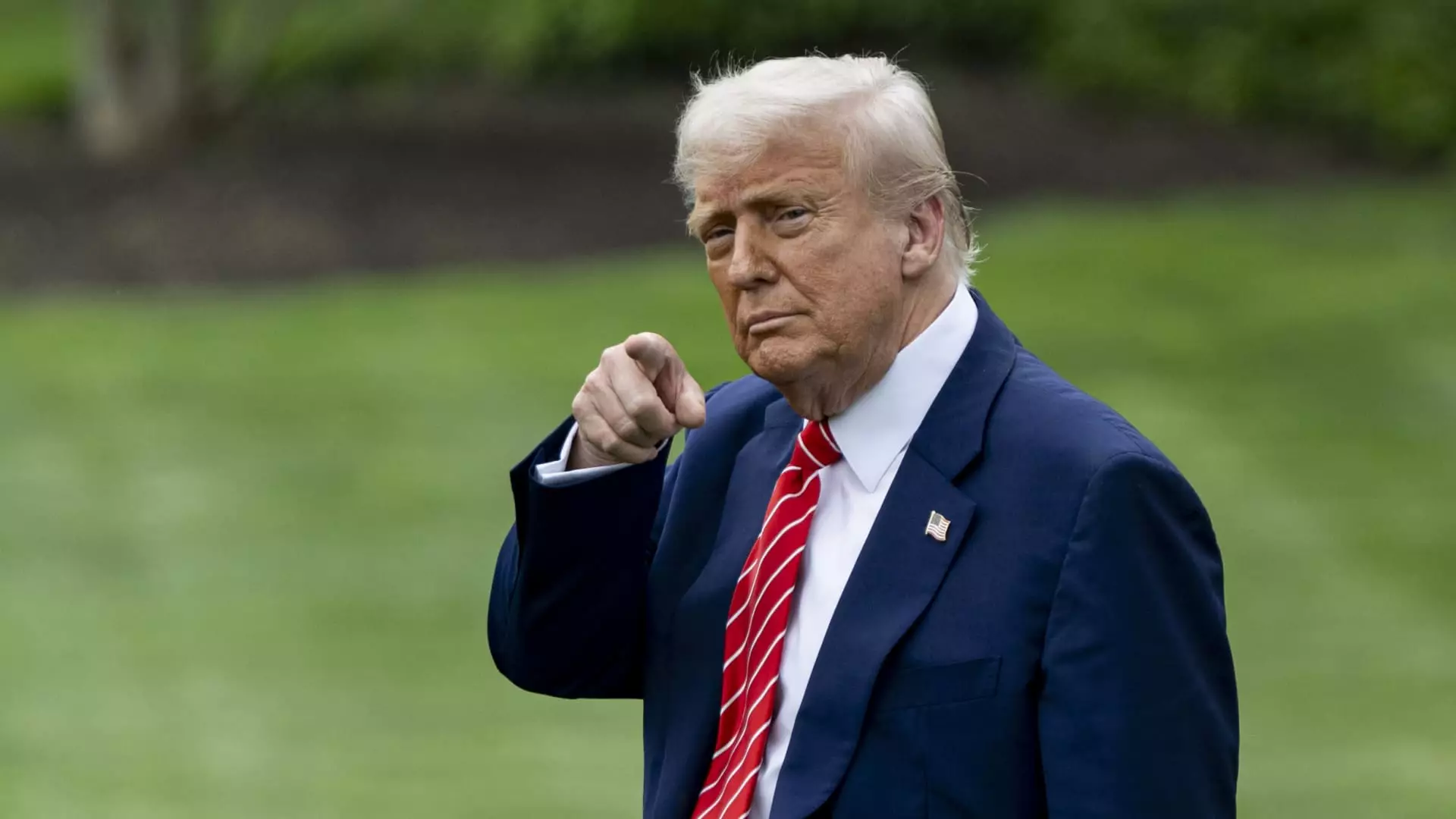The recent consideration of President Trump’s massive spending package by the Senate has drawn attention to a provision that could alter the landscape of foreign investment in the United States significantly. Section 899, a measure that enables the imposition of a tax of up to 20% on foreign investors, particularly multinational corporations with stakes in U.S. markets, has sparked controversy and skepticism on Wall Street. Dubbed a “revenge tax” by various financial analysts, this provision is a blatant move towards economic protectionism that could backfire on American soil.
The intention behind such a tax appears to be retaliation against foreign nations that impose what are deemed “unfair foreign taxes” on American enterprises. By framing the discussion around inequity, proponents of Section 899 seek to court support, dangling the prospect of levying substantial financial penalties against rival economies. This strategic maneuver may serve as a rallying call in favor of domestic corporations, but the long-term implications for the economy, particularly in fostering a welcoming atmosphere for foreign investments, remain precarious.
The Wall Street Response: Fear and Trepidation
As the specifics of Section 899 come into focus, Wall Street has expressed significant apprehension. Top industry analysts, including James Lucier from Capital Alpha Partners, have indicated that many investors remain unprepared for the ramifications of this provision. The bill’s structure could potentially impose crippling taxes on income derived from investments, with projections suggesting tax burdens could escalate to a staggering 50%. This overwhelming fiscal environment might dissuade foreign investors from pursuing opportunities within the U.S., effectively shutting the door on much-needed capital and innovation.
Moreover, the Investment Company Institute has voiced its concerns that the punitive nature of the measure could severely limit foreign investment flowing into American markets. A chilling effect on investor sentiment could be disastrous—not only for asset management firms but for the broader economy that thrives on capital influx. The potential consequences of driving away foreign investment are palpable; the U.S. economy could see a stagnation in growth as it grapples with a self-imposed barrier to international commerce.
The Legal Quagmire: Defining “Unfair Foreign Taxes”
Central to the debate surrounding Section 899 is the ambiguous terminology coined to define “unfair foreign taxes.” The lack of clarity leaves room for misinterpretation and fears of overreach. Analysts suggest that terms like the “undertaxed profits rule” stemming from the global minimum tax negotiations led by the Biden administration, in addition to digital services and diverted profits taxes, could target a broader array of nations than initially perceived. This broad swath of taxation could result in unforeseen consequences, impacting not only foreign investors but also the domestic companies relying on global markets for growth and resources.
In a time of increased globalization where economies are inextricably linked, such a broad and ambiguous tax could create an environment rife with legal disputes and regulatory complexities. It further raises the question of how international relations will fare under the weight of new economic barriers. Would nations retaliate in kind against U.S. companies operating within their borders? The ripple effects could lead to tit-for-tat taxation wars, disrupting the delicate balance of trade agreements that many American corporations depend on.
Political Ramifications: A Partisan Divide
As the Senate deliberates over Section 899, the political landscape remains polarized. While some factions of the Republican Party, specifically members of the House Ways and Means Committee, endorse the provision as a necessary measure to encourage foreign countries to revise their tax strategies, others remain skeptical. The partisan divide reflects broader ideological tensions regarding economic policy and the role of government in regulating international business practices.
Chairman Jason Smith’s relentless push for the provision demonstrates a commitment to strengthening domestic economic frameworks, yet the inherent risks to U.S. investment attractiveness cannot be understated. Such a vantage point appears shortsighted. While presenting these tariffs as a tactical move to secure favorable tax conditions from foreign nations, they might instead paint the U.S. as an unwelcoming environment for international business.
The consequences of adopting Section 899 may extend beyond financial implications; they could shape perceptions of the United States as a global leader in innovation and investment. This not only jeopardizes existing relationships but threatens the future of economic partnerships vital for sustained growth and prosperity.
Section 899 represents a dangerous precedential shift in American tax policy, one that reflects a growing trend towards isolationism and economic warfare. While defending U.S. interests is essential, achieving that objective through retaliatory taxation against foreign entities threatens to undermine the very economy it intends to protect. As this narrative unfolds, the stakes for both foreign and domestic stakeholders could not be higher.

